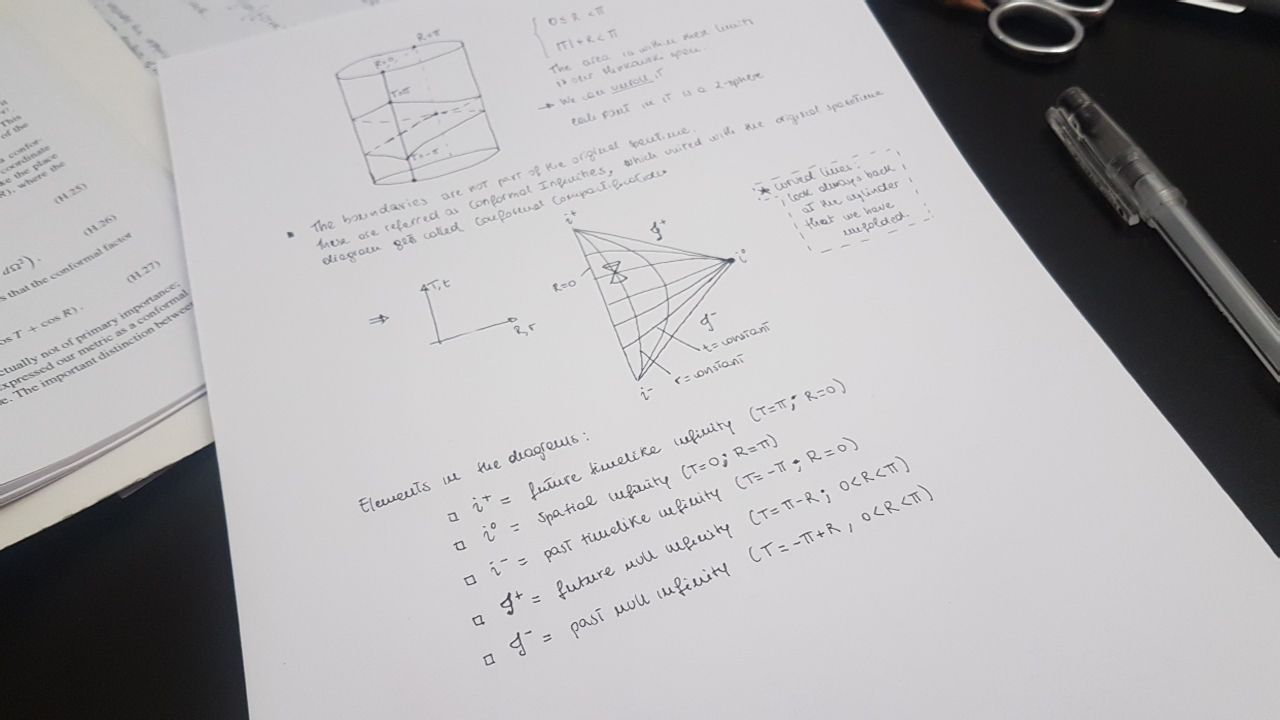Note taking
A simple and essential art to sharpen our thinking.
Mon Mar 25 2024 19:50:47 GMT+0000 (Coordinated Universal Time)The art of taking notes
Since I started studying, I've been refining the art of note-taking. It's something that pleases me, helps me remember effectively thanks to my visual-oriented memory, and ends up aiding my long-term memory. Sometimes I find myself impressed with my ability to remember that thing. As I've learned, usually there was some effective memorisation technique behind it.
I've been trying different note-taking systems, mostly developed for pen and paper, and by the time of my M.Sc. studies, I was writing visually pleasing, colour-coded, book-like notes. I loved that, and it worked perfectly for class-driven learning.

Effective note-taking means not repeating the work of skimming through manuals each time you want to remember a concept, or do a half-reliable google search, where each time you'll have to double-check the reliability of the source. This became increasingly essential as I started working as a Software Engineer, where most of my work is troubleshooting, researching and building from scratch. Soon I realised that if I lose most of my time in repeating researches I do on a regular basis, without centralising that knowledge, I couldn't be as fast at solving them and dedicate the extra time to learn about deeper issue underlying it.
For years, I've been struggling to fit the pen and paper systems I curated into an hybrid with a digital organisation system, often times ineffectively. I still liked the control and the slow-paced approach of writing down my thoughts with pen and paper, and I thought that approach would apply to everything. When I started working as a Software Engineer, I realised that a lot of times I was losing some vital information in between, passing through faster than I could write with a pen. I needed fast brain-dumping, pasting from a source or a documentation, and then later revise them with a slow-paced approach. Then I stumbled upon obsidian and I understood I had to rewire my thinking around note-taking to leverage the power of this incredible tool.
My paper notes had always been a book-like experience for classmates who wanted to take my same classes. Nowadays, in my work as a Software Engineer, I use them to do fast and quick knowledge transfers, document system design and the drivers behind that specific decision at that point in time, document bug investigations and much more. This way, if a colleague comes in asking for details about a similar issue they're experiencing, or technology they want to adopt, with a simple click I export my note into a PDF and voila. What's better than avoiding a 1h long meeting to repeat researches you've done already once, and probably forgot about?
Right now, my system for note taking counts on different tools:
🧠 Obsidian: brain dump and refine
🖌️ iPad: visualising and sketching
For more details about how I use the two, click on the respective links!